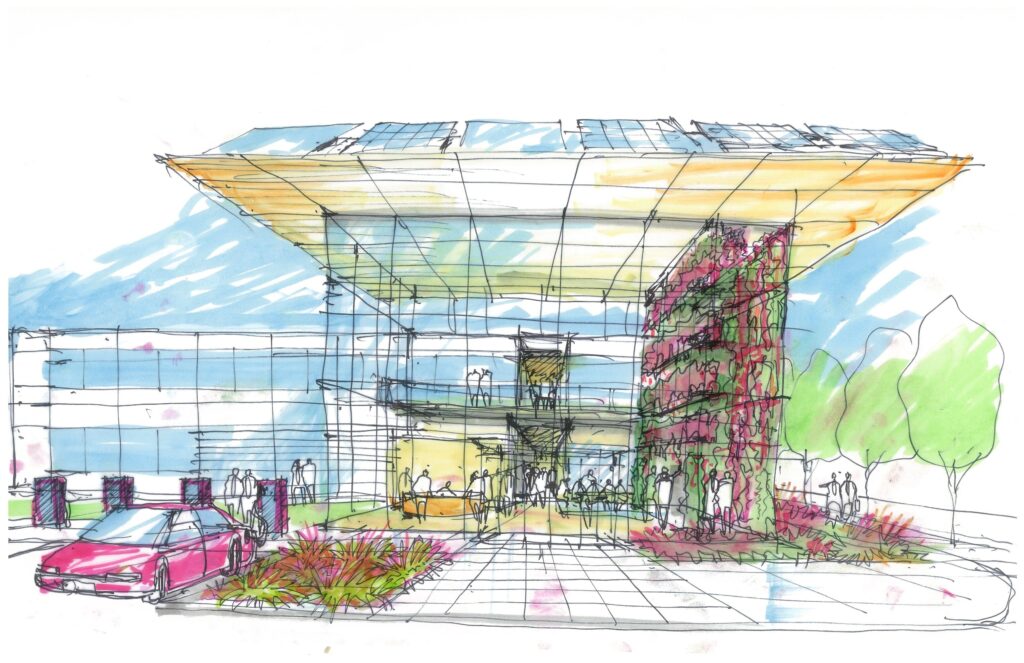GTEC Update – August 2025
Canada’s First Climate Response Centre
A ‘pop up’ version of Canada’s first Climate Response Centre will open to the public during the first three months of the new Arbutus Neighbourhood House (early 2026). The CRC will feature an exhibit entitled Neighbourhood in the 21st Century: A Climate Adapted Future. Advised by prominent urban planners and architects and created by local artists, this exhibit will educate the public about what is possible in a climate-adapted future and, in conjunction with Arbutus Neighbourhood House, celebrate the significance of neighbourhood, now and in the future. This 5-7 day exhibit will be complemented by workshops, climate cafes and performances by local artists over the 3 month opening period. The exhibit incorporates an interactive area where visitors can respond to the exhibit and imagine themselves taking part in creating a new and exciting future. The exhibit will include a digital kiosk with both interactive and information delivery features.
The GTEC Climate Response Centre will be a source of relevant, accessible educational and community development programming, a template for communities throughout B.C. and a centre of evolving community-based expertise about responding to climate change. The first of its kind in Canada, the GTEC Climate Response Centre will be a scalable, multi-faceted resource and community hub, a centre for public education about climate change, as well as a gathering place for the many involved people and organizations.

Climate Response Centre Concept drawing by Perkins & Will
Direct Indigenous engagement guides Climate Response Centre programming, reflecting our conviction that Indigenous reconciliation is closely tied to responding effectively to climate change. Our response needs to be informed by Indigenous wisdom and culture based on thousands of years of stewardship of the unceded, ancestral land upon which this Centre will be located.
Building social and emotional resilience is a critical dimension of a sustained and constructive response to the impacts of climate change. Along with its educational and community development programs, the Centre provides a range of programs especially designed to support the next generations who will bear the burden of the impacts of climate change.
Many of the necessary technologies to achieve a low-emission society are available today and many others are under development. But large-scale systemic change only comes about when enough minds have changed. That means climate change isn’t only an individual, technical or environmental problem, it is a systemic challenge that requires educational and community development solutions.
Initial funding support has been provided by the Trottier, Wellspring Foundations and numerous individual donors.
Help us make the Climate Response Centre a reality! Follow this link to support GTEC and our projects. Or contact us for more information.
